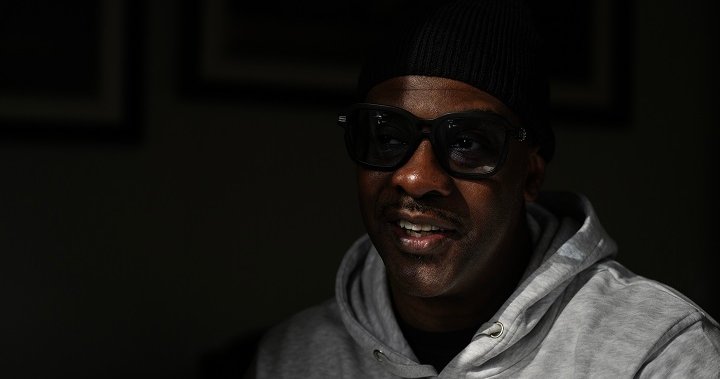Some moments in a career of “firsts” achieved by rapper Maestro Fresh Wes seem bigger than him, and next Sunday is certainly one of them.
That’s when the Canadian star officially becomes the first hip-hop artist inducted into the Canadian Music Hall of Fame at the Juno Awards. His name will be added to a succession of influential homegrown acts such as k.d. lang, the Tragically Hip and Deborah Cox.
It’s a moment the “Let Your Backbone Slide” performer, born Wesley Williams, patiently awaited for years, confident the country’s music industry would eventually come around, as it has before.
“I enjoy being the first,” the Toronto native explained during a recent interview about reaching new heights in Canadian hip-hop.
“I’m a foundation of something that starts breaking international parameters.”
As one of the country’s first hip-hop artists, Williams blazed trails for generations of Canadian rappers, notably Kardinal Offishall and Drake, who took the local game to global levels.
In his early twenties, he won the inaugural 1991 Juno for rap recording with his party anthem “Let Your Backbone Slide,” which broke ground in the United States for Canadian rap. His 1989 record “Symphony in Effect” became the first Canadian rap album to receive platinum certification, meaning it sold 100,000 copies.
Symphony in Effect becoming the first Canadian rap album to receive platinum certification.
More recently, “Let Your Backbone Slide” became the first rap song inducted into the Canadian Songwriters Hall of Fame in 2019. And this year, he’s the first-ever hip-hop recipient at the Governor General’s Performing Arts Awards.
In some ways, it seems as if Canada’s institutions are hurriedly catching up to the influence of Maestro Fresh Wes. If that’s true, it doesn’t seem to bother him much.
The email you need for the day’s
top news stories from Canada and around the world.
The email you need for the day’s
top news stories from Canada and around the world.
“I got love,” said Williams, who’s won three Junos across his career.
“But there’s always a hesitancy to give me love.”
While Williams never expresses it directly, he holds complicated feelings about being toasted by the gatekeepers. For years, he fought to get respect for Canadian hip-hop music when many in the mainstream wrote the genre off as a fad or ignored it entirely.
He’s always kept an optimistic view, which he continues to hold as he moves toward his induction.
“It’s not just about me; it’s about a genre of music,” he said. “And I represent the genre.”
Williams describes a sense of responsibility going into the ceremony, drawing on a childhood memory to illustrate its complexity.
When Williams was in high school, Olympic athlete Ben Johnson visited his class. It was the early 1980s and Johnson was a young, accomplished Black Canadian sprinter with a hopeful future.
Not long after that visit, Johnson won the 1988 Summer Olympics gold medal in the 100-metre final, making him a hero to the country. But a few days later, he was stripped of the honour in a doping scandal that forever tarnished his reputation.
Williams doesn’t get into the specifics of Johnson’s case, but that experience reminds him how tenuous being lauded can feel.
“Laying your laurels is a liability to your personal and professional development,” he insisted.
It’s one reason Williams said he is always looking ahead to his next endeavour.
In recent years, he’s starred on CBC’s “Mr. D” sitcom, hosted the YouTube cooking series “Maestro Chef Wes,” and founded a trade scholarship for Black youth at Nova Scotia Community College.
Earlier this month, he issued “Rap Prime Minister,” a 24-track compilation that spans much of his career and reintroduces his brand of rousing inspirational rap anthems to a new generation.
Some of the standout songs include his stirring “Underestimated,” a 2015 jam with JRDN and JD Era; and “Gravity,” an R&B-fused 2019 effort with Saukrates and O-Sound, where he pulls a few lines from his Guess Who-sampling 1998 smash “Stick to Your Vision.”
Williams celebrates his 56th birthday exactly one week after his Hall of Fame induction. That will make him the same age as his idol Leonard Cohen when he received the honour at the 1991 Juno Awards.
The parallels don’t escape Williams, who sometimes pulls up this memory as he talks about his ambitions. The same year Cohen was inducted, Williams won his first Juno. Watching the Montreal poet laureate on stage left a big impression.
“Just to see the standing ovation he got and how well received he was from the country, I was like, ‘Yo, one day that’s what you’ve got to be,’” Williams said.
“Who would’ve thought that’s where I am now?”
With that in mind, Williams has considered what his induction by Kardinal Offishall should look like on the Junos broadcast.
When he performs a medley of his past hits on Sunday, he plans to showcase several Halifax-area Black performers in recognition of the Canadians whose ancestors escaped slavery through the Underground Railroad.
They include local R&B singers JRDN and Kaleb Simmonds, as well as musicians Cyndi Cain, Gary Beals and Reeny Smith.
“What I want to see is my Scotian brothers and sisters feeling represented,” said Williams, who moved to Saint John, N.B., with his family during the pandemic.
“This is a part of not only my hip-hop history but a part of Canadian Black music history.”




